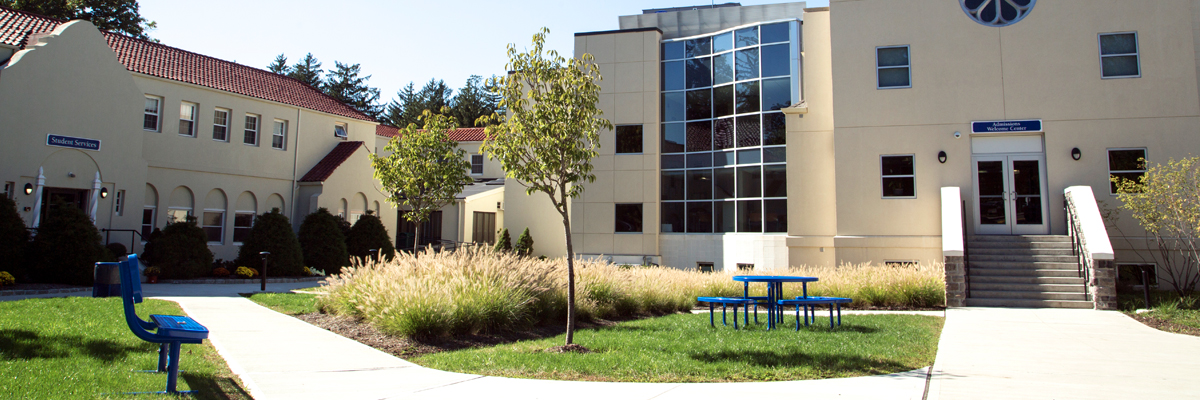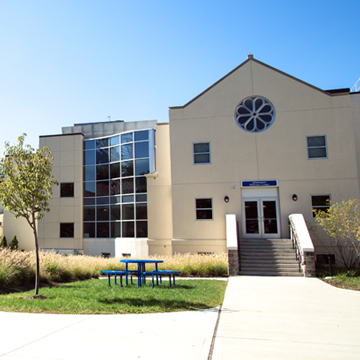Berkeley College Behavioral Intervention Team (BIT)
Mission Statement
The Berkeley College Behavioral Intervention Team (“BIT”) is committed to improving campus safety and security by proactively and collaboratively identifying, assessing, and managing student situations that pose, or may reasonably pose, a threat to the safety and well-being of the College community or any of its members. With a multidisciplinary approach, the BIT provides a centralized and coordinated assessment and intervention process to identify and aid students displaying troubling or disruptive behaviors, prior to the onset of crisis, in an effort to promote a safer campus community.
Purpose
While interacting with students across the College, individuals may be faced with situations in which a student is highly disruptive or displays behavior that may appear threatening to self or others. The Behavioral Intervention Team (BIT) was established to:
- Provide consultation, education, and support to faculty, staff, and associates in assisting students who display highly disconcerting or unusual behaviors
- Gather information to assess situations involving students who display highly disconcerting or disruptive behaviors
- Recommend appropriate intervention strategies before a crisis occurs
- Connect students with need-based campus and community resources
- Monitor ongoing behavior of students who have displayed highly disruptive or disconcerting behavior
The Behavioral Intervention Team is not an emergency response team. If there is an immediate threat to a student or to the Berkeley College community, or if there is a medical or mental health emergency, please call 911.
Please be aware that phones and e-mail addresses for BIT and campus student support services personnel are monitored during College business hours only. If you are calling about an immediate medical, safety, or mental health emergency, please call 911 first.
THE DISTRESSED STUDENT - RESPONSE OPTIONSIS THERE DANGER TO SELF OR OTHERS? |
|
|
Yes, refer student to the Behavioral Intervention team: Behavioral Incident Report (electronic form) |
No, but you are concerned. |
|
The Behavioral Incident Report is an electronic form designed to enable faculty, associates, and students to voluntarily report highly disruptive and/or concerning student behaviors. An incident, in this context, is an event that does not warrant immediate intervention. In the event of an emergency that requires immediate intervention, the reporter should call 911. The Behavioral Incident Report will provide a mechanism for addressing individual incidents and may also reveal patterns of disruptive behavior of specific students and more generally patterns throughout the College. It will also provide aggregate data on the nature and frequency of reported disruptions at Berkeley College. |
|
When to Make a Referral
Referral Identifiers
Student distress may manifest in behavior or in the reaction the behavior elicits in others. If you notice any of the following behaviors, the Distressed Student - Response Options on the main Berkeley College BIT webpage will assist you in responding to the student and providing appropriate referrals.
You are encouraged to report any incident that is of concern to you.
Make a Referral When:
- Overly aggressive behaviors toward others; inability to set limits or re-direct focus
- Inability to make decisions or cope
- Highly inappropriate or strange behavior that may pose a threat to safety
- Extreme overreaction to circumstances
- Writings and comments endorsing violence; unusual interest in violence
- Indirect or direct threats in writings or verbalizations
- Lack of empathy and concern for others; inability to care
- Severe anger management problems
- Appearance of being overly nervous, tense or tearful on more than a single occasion
- Written or verbal expression of suicidal thoughts; suicidal actions or self-injury; or feelings of hopelessness
- Statements regarding having a weapon on campus
- Threats about harming self or others
- Erratic behavior (including online activities) that disrupts the mission and/or normal proceedings of other Berkeley college students, faculty, or staff
- There has been an involuntary transport to the hospital for substance use/abuse
- There has been an involuntary transport to the hospital for mental health issues
- Significant behavioral or emotional changes
- Significant withdrawal
- A drastic change in hygiene or appearance
- Significant decline in academic performance
- Alcohol or drug abuse or addiction
- Bizarre thoughts or behavior that does not fit the context of an event or situation
- The student admits there is a serious problem, but does not want to talk to you about it
What Happens Next?
The primary purpose of the BIT is to offer strategies for mitigating emergent or crisis situations involving students. The student you refer to the BIT will be given the support and assistance they need by College and community resources. Depending upon the actions of the student, and following a review of the information presented, appropriate College or community-based referrals may be required.
If there is an immediate threat to a student or to the community, or if there is a medical or mental health emergency, please dial 911.
If you would like to contact any of the members of the BIT, please email Confidential@BerkeleyCollege.edu or call (973) 278-5400 ext. 1029.
BIT Committee Members
The Behavioral Intervention Team is composed of representatives from critical areas of the Berkeley College community, including:
Sherrille Shabazz, Ed.D.
Vice President, Student Development and Campus Life
(Serves as BIT Co-Chair)
SRH@BerkeleyCollege.edu
Heather Eaton-Dwyer
Dean of Students
Woodland Park
HED@BerkeleyCollege.edu
Ernesto Fong
Faculty Liaison, New Jersey
ERF@BerkeleyCollege.edu
Sarah Friedland, LPC, ACS, DRCC, CMPC
Director of Counseling and Wellness
Sarah-Friedlan@BerkeleyCollege.edu
Robert Maguire
Assistant Vice President, Public Safety and Emergency Management
Robert-Maguire@BerkeleyCollege.edu
The BIT utilizes the services of consultants as needed. Additional members from the campus community may be included in meetings of the BIT as needed.



